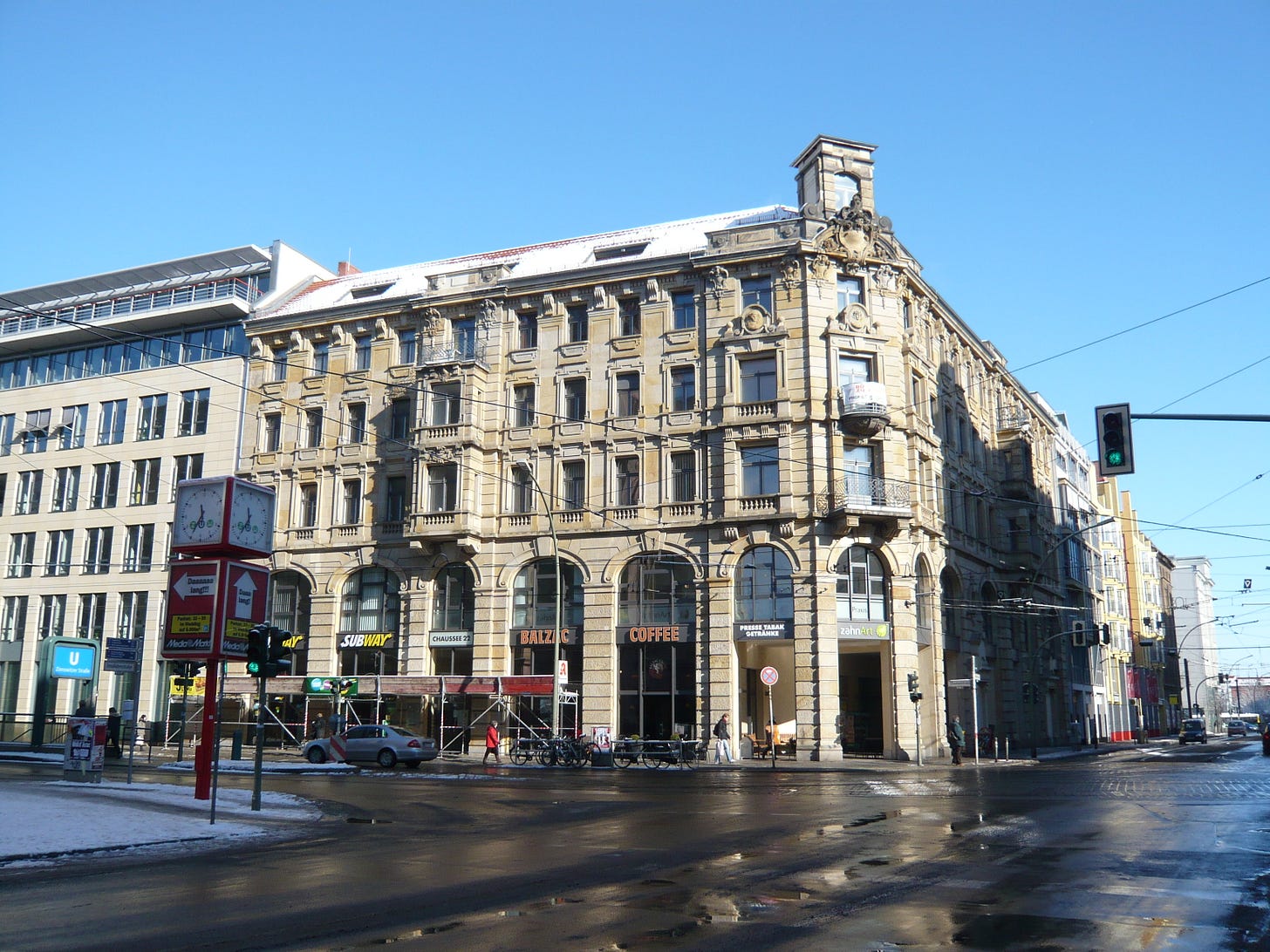Blaming the Victim: The Shootings at Alexanderplatz and Chausseestrasse
How the fascists used media to incite, then justify street violence in 1918.

Coming on the 35th anniversary of the opening of the Berlin Wall by East Germany,
this post is No. 101 since I launched “Berlin Stories,” on June 19, 2023. -ts.
BERLIN — Today I want to observe the anniversary of political violence that occurred during Germany’s November 1918 revolution against the “Second Reich” of Kaiser Wilhelm II. Wilhelm and his Hohenzollern monarchy fell that month, in part, due to widespread domestic opposition to his disastrous entry into the First World War. (The day that was celebrated as “Victory Day” among Western Allies was celebrated as the beginning of a German revolution over the ruling class — and the subsequent end of the war.)
This is a story of violent acts by soldiers who were sent to Chausseestrasse by an official of the interim “revolutionary” government — later, the Weimar Republic — with orders to put down a small demonstration of leftists. Nineteen people were killed in the shooting, and many others wounded. In greater detail than ever before, today’s historians are able to understand and document this and similar episodes of political violence in Weimar-era Berlin, giving more emphasis on the role being played by media of that time, for example.
We now understand how certain official, widely circulated media-communications distorted public perception of events during that time — and, really, ever since.
The principal antagonists (and ultimate winners) of this political struggle were officers of Kaiser Willhelm’s military, men who had led the nationalist “lost cause” before the war-ending soldiers’ rebellion of November 1918, a mostly peaceful and jubillent (democratic-)socialist uprising that quickly spread among the German people.
Allied powers would push every advantage in peace negotiations — holding the next, still-unformed, broken and bancrupted German government responsible for the war. When they saw this, Berlin’s conservative military officers turned their anger on the nascent government’s most left-wing leaders (and their political parties), who had successfully deposed the kaiser while driving the ongoing revolution.
A strange thing occurred, then, with these conservative members of the former kaiser’s military “brass:” They quickly (and hypocritically) re-branded themselves as loyal “Social Democrats,” and began declaring all pro-democratic, socialist, and anti-monarchy leftists as “enemies of the People.” Within a short time, this ended the otherwise peaceful revolution.
The fact that this rhetoric was picked up and shared by “mainstream” SPD leaders — and their press — resulted in the almost immediate eviction of German progressives from all policy debates in Berlin’s halls of power. This, in turn, set the stage for what would become the now-familiar, more thuggish “battle for the streets” in Berlin. All before the new Weimar government and its constitution could be formed.
Enter, Karl Liebknecht (1871-1919), a bearded Berlin lawyer and parlementarian. A lifelong Marxist thinker, Liebknecht began his political career during the kaiser’s reign, as a member of the “loyal opposition,” the mainstream German Social Democratic Party (SPD). As such, Liebknecht had served in the kaiser’s token national Parliament (Reichstag), arguing for a more liberated German People against their bourgeois (bürgerlich) government. Especially after the start of World War I, Liebknecht and his left-wing allies openly favored overthrowing oligarchic power in favor of a new revolutionary government “of the People” (für das Volk).
Liebknecht’s partner in the German anti-war movement of 1914-18 was Polish-born essayist and activist Rosa Luxemburg. Also a dedicated reader of Karl Marx, Luxemburg was popular and intelligent enough to have made a good German chancellor, according to one mainstream diplomat of that time, Count Harry Kessler. (Kessler wrote this just after Luxemburg and Liebknecht were assassinated at the hands of two secret military hit-squads.)




